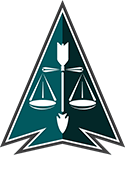National American Indian Court Judges Association
Webinar 3: EXPUNGEMENT AND INDIAN COUNTRY: The Need to Address Past Criminal Histories for a Better Future The “EXPUNGEMENT AND INDIAN COUNTRY: The Need to Address Past Criminal Histories for a Better Future” was held on February 18, 2015 from 3:00 – 4:30 p.m. (ET). Colline Keely, Executive Director, Oklahoma Indian Legal Services (OILS), Steven Hager, Director of Litigation, OILS, and Niki Lindsey, Managing Attorney, OILS Ada, Oklahoma office, provided an expungement overview including, what expungement is, what kind of criminal records can be expunged, and the impact of having a criminal record based on their experience in Oklahoma state and tribal courts and working with tribal clients. They also discussed how expungement has helped their clients by removing impediments and allowing clients to obtain employment, housing assistance, and professional licenses. Additionally, the presenters discussed the general elements of expungement and presented the three ways a client’s record could be cleaned up in Oklahoma: 1) expunging a deferred sentence under Title 22 O.S. §991c; (2) expunging records other than a deferred sentence under Title 22 O.S. §§18 & 19; and (3) by seeking a pardon. The processes and requirements for cleaning up a criminal record were discussed in depth. The presenters concluded with a discussion on the comprehensive services OILS provides, including holding expungement clinics. The clinics allow the attorneys to inform people of their rights, make initial assessments of qualification and records of clients, and advise the clients of what an expungement is and is not. There was also some discussion about the advantages and disadvantages of holding the clinics. The clinics are useful in that they can provide maximum services for minimal costs, service across the service area, use pro bono attorneys and law students to assist in clinics, as well as train future advocates. Some of the disadvantages include the lack of internet connectivity, space and time, and ability to follow-up with clients to access records. The presentation was followed by a question and answer session and concluded with a brief overview of Bureau of Justice Assistance (BJA) resources. We received several email responses thanking us for this webinar topic. We hope the outcome is that more tribes will encourage expungement codes to be implemented, educate their members on how to obtain an expungement and provide the service under their BJA grants and/or seek to work with their local legal aid offices to collaborate on this issue. |

